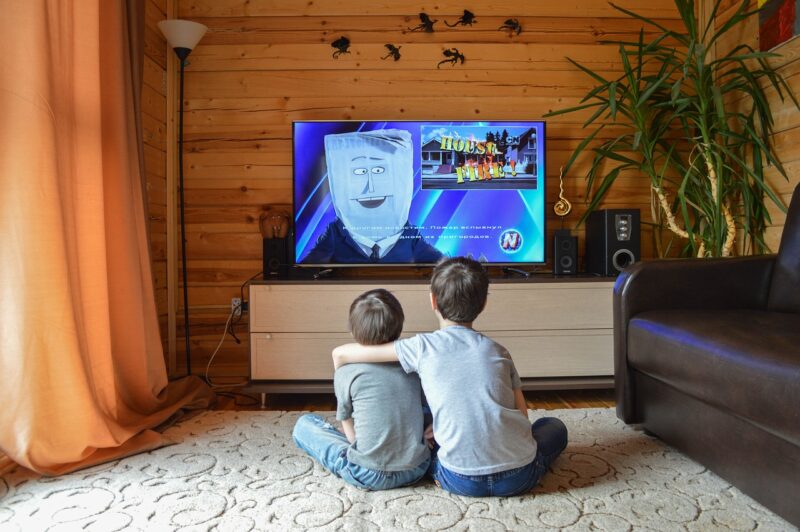Why We’re Addicted to Netflix Binge-Watching – And How to Break Free
November 10, 2024

In the realm of modern entertainment, Netflix has profoundly transformed how we consume television. The rise of binge-watching—a term that encapsulates viewing multiple episodes of a series in one sitting—has become a cultural phenomenon. Netflix, with its vast library of content, has made it all too easy for viewers to dive into their favorite shows and watch until their eyes blur. But what is it about binge-watching that captivates us so deeply, and why do many of us feel compelled to indulge in it? Furthermore, how can we create healthy boundaries to enjoy our favorite shows responsibly?
1. The Allure of Binge-Watching
Binge-watching is not just about quantity; it’s about the emotional journey that comes with it. Several factors contribute to this phenomenon:
- Story Arc and Characters: Many series are designed with cliffhangers at the end of episodes, making it nearly impossible to resist watching just one more episode. Characters evolve inside a richly woven narrative, drawing viewers deeper into their journeys, making us invest emotionally and sometimes obsessively.
- Availability of Full Seasons: Unlike traditional television where viewers must wait a week between episodes, streaming platforms like Netflix provide entire seasons at once, allowing viewers to immerse themselves fully without interruption. This availability encourages long marathon sessions that viewers might never consider with traditional programming.
- Social Aspect: Binge-watching often becomes a social activity. Discussing episodes with friends and family can enhance the experience. Social media platforms are flooded with memes and discussions about popular shows, which further fuels the desire to catch up with the latest trends and join conversations.
- The Dopamine Effect: Watching a thrilling series can trigger the brain’s reward system. With each episode, viewers receive dopamine hits that provide pleasure and motivation. This neurological response reinforces the behavior, leading to a cycle of binge-watching as people seek to relive those pleasurable moments.
Understanding these factors helps us see why binge-watching can feel so irresistible, yet recognizing its impact on our lives is crucial for maintaining a healthy relationship with screen time.
2. The Consequences of Binge-Watching
While binge-watching can be enjoyable, it also has its downsides. Here are five potential consequences:
- Physical Health Issues: Excessive screen time can lead to a sedentary lifestyle, contributing to weight gain, poor posture, and fatigue. Health experts recommend taking regular breaks to stretch and move around, which many binge-watchers neglect while caught up in their shows.
- Sleep Disruptions: Engaging in late-night binge-watching sessions can disrupt sleep patterns. The blue light emitted by screens interferes with melatonin production, making it harder to fall asleep and affecting overall sleep quality, leading to fatigue during the day.
- Reduced Productivity: Binge-watching can eat into valuable time that could be spent on more productive activities such as exercising, reading, or pursuing hobbies. This can lead to feelings of guilt or regret, especially when responsibilities are neglected in favor of watching another episode.
- Emotional Impact: While binge-watching can provide an escape, it can also affect mental health. Prolonged periods of isolation and excessive screen time can aggravate feelings of loneliness or depression, particularly if it substitutes social interaction with family and friends.
- Desensitization to Storytelling: The rapid consumption of stories might cause viewers to become desensitized. The thrill of cliffhangers and emotional reveals can lessen over time, leading to a diminished enjoyment of series or films that don’t capture them as powerfully as before.
By acknowledging these potential consequences, viewers can thoughtfully approach their consumption habits and make adjustments to enhance their overall quality of life.
3. Tips to Break Free from Binge-Watching
Breaking the binge-watching cycle is essential for a balanced, fulfilling life. Here are several strategies to help you moderate your viewing habits:
- Set Viewing Limits: Designate specific days and times for watching shows. By establishing a timeline, you can enjoy your favorite content without feeling overwhelmed. Use timers or apps that can help remind you when it’s time to turn off the screen.
- Take Breaks Between Episodes: Commit to a short break after each episode. Use this time to stretch, hydrate, or even meditate. This not only helps your body but also gives your mind a chance to process the episodes you’ve watched and helps reduce screen fatigue.
- Engage in Offline Activities: Make an effort to participate in activities that don’t involve screens, such as reading, cooking, or exercising. This will help diversify your leisure activities, making binge-watching less likely to dominate your free time.
- Practice Mindfulness While Watching: Pay attention to what you’re watching rather than mindlessly consuming content. Engage with the storyline by asking questions, discussing episodes with friends, or writing reflections. This can deepen your appreciation for the media and help curb excessive viewing as you become more conscious of the time spent watching.
- Reconnect with Social Activities: Distracting yourself from binge-watching can sometimes mean rekindling social connections. Plan gatherings, game nights, or even group viewings to add a more engaging social component to your entertainment without falling into the binge trap.
By being mindful about your viewing habits and integrating these strategies into your lifestyle, you can enjoy the benefits of quality television without the negative impacts of excessive binge-watching.
Conclusion
The phenomenon of binge-watching, particularly on platforms like Netflix, reflects not only our changing viewing habits but also our innate desire for storytelling and emotional connection. Understanding the reasons behind our behaviors, recognizing the potential consequences, and taking proactive steps to manage screen time can help us maintain a healthy balance between entertainment and well-being. In a world where the next episode is but a click away, we hold the power to curate our entertainment according to our lifestyle and needs. So next time you open Netflix, remember it’s okay to step away and embrace the world beyond the screen, letting stories be a part of life, not the entire narrative.







